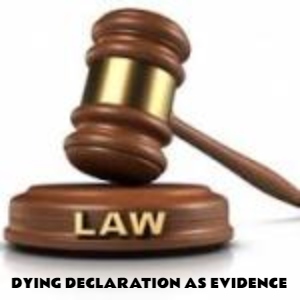

By Sunil Garodia
First publised on 2021-06-27 14:24:43
The importance of dying declaration as evidence was once again in focus when a sessions court in Maharashtra handed a term of life imprisonment to a couple accused of burning their sister-in-law to death over a property dispute. While the deceased had given a dying declaration saying that the couple had burned her, the defence said that the woman had attempted suicide but was tutored by her husband to frame them for murder.
But the court said that a person on the deathbed speaks the truth and cannot be tutored. It also said that the prosecution, with the help of 13 witnesses and the dying declaration, had proved that it was the intention of the accused to cause injuries to the deceased and kill her. The two families lived in separate portions of the same house and the murder was allegedly committed for a dispute over property.
Section 32(1) in The Indian Evidence Act, 1872 says that "When it relates to cause of death. - when the statement is made by a person as to the cause of his death, or as to any of the circumstances of the transaction which resulted in his death, in cases in which the cause of that person's death comes into question."
In the instant case the cause of the death (suicide or murder?) came into question and the dying statement recorded by the victim clearly spelt out the circumstances of the transaction (the accused couple pouring kerosene over her and setting her to fire) and hence there was no reason for the court to ignore it or not take it as final evidence. There are some exceptions where the dying declaration is not admissible and they are well established.
Other than that, as the apex court said in its decision in P.V. Radhakrishna v. State of Karnataka "the principle on which a dying declaration is admitted in evidence is indicated in latin maxim, nemo morturus procsumitur mentri, a man will not meet his maker with a lie in his mouth. Information lodged by a person who died subsequently relating to the cause of his death, is admissible in evidence under this clause."











